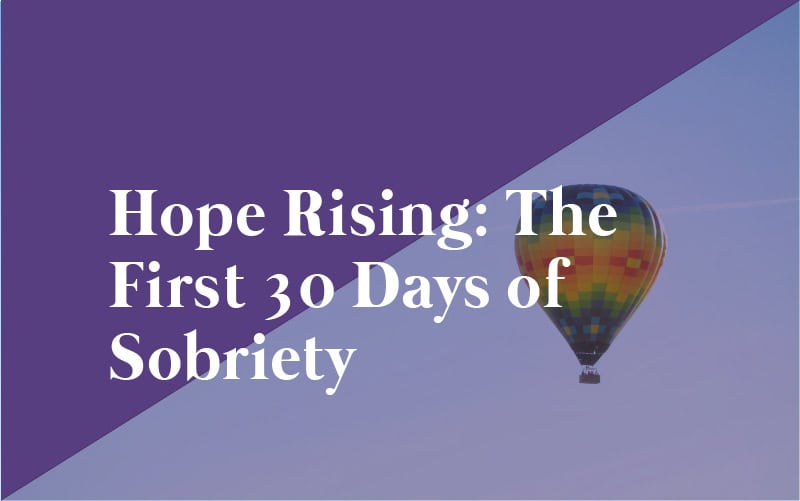
by RE Helper | Jan 15, 2025 | Alcohol Free, Blog, Early Sobriety, The First 30, The first Year
Today’s blog entry is from Jamie Riel. Jamie is a member of Café RE Blue.
Hope Rising: The First 30 Days of Sobriety
By: Jamie Riel
The first thirty days of sobriety began where the fifty years of drinking left off. It’s not my first attempt at being sober—far from it! There had been many first days and several short stints with sobriety, but the myth of moderation was powerful – a relentless false god. Of course I can control it. Of course I can drink responsibly.
Of course, I couldn’t.
The last binge began shortly after my wife left for an overnight visit for a baby shower. My moderation plan listed 2 drinks. In retrospect, a 2-drink limit on an overnight alone is downright cute. A sober joke. I mean, I’m staring at hours of blissful alone time. I put up a front of confident self-restraint all morning, even as the tiny voice inside laughs and knows what is to come. By midnight, the counter is littered with empty beer cans, scotch nips, a pinot grigio bottle. Shame rushes in. The self-loathing of failure. The lie is revealed again.
It is time. I haven’t reached bottom because I know I can go deeper and I sense how ugly that would be. This is as deep into the ugly that I dare go!
There is nothing fun about these first 30 days. I constantly vacillate between rising hope, ecstatic relief, and naked fear. Though I am certain sobriety is the right decision, a driving inner force screams there is no way in hell I am going to do this.
Emotions flitter in and out like backyard birds to the feeder.
This is the most surprising element in these first days. I have used alcohol for decades to mask or manipulate my emotions. Now, with the booze gone, they appear at unpredictable times, and engulf me. At times I am overwhelmed with feeling vulnerable. Fragile. Untethered. But, I strive to be more mindful and eventually can watch my emotions pass as clouds in the sky, rather than as storms I need to shelter from or trudge through.
Fear sits on my shoulder every moment, sometimes just quietly resting, sometimes whispering in my ear, sometimes screaming! Fear of drinking again. Fear of not drinking again. Fear that I am actually going to do this! Fear that I can’t! I keep going.
Regret visits me more and more.
The realization that I took my first drink 50 years ago is staggering. The poor decisions I made, the people I hurt, the self-loathing I nurtured that dragged me down during those many years. The time and energy and opportunities squandered. The money wasted. What have I done? Pushing down the regret is like trying to keep water from overflowing from a bucket with my hands.
But there is much relief in letting go of my near constant obsession with planning the drinking day, letting go of the constant schemes of keeping the drinking evidence hidden, the determination to keep the buzz under control. Relief in no more nursing hangovers so I can feel good enough to drink again in the evening. The mornings become heavenly.
I burn ships.
I tell people that I am no longer drinking, but that is not the hard part. The challenge is in sharing the why, and though I don’t need to share that with everyone, I do need to share it with those closest to me. I know it keeps me accountable, that there is now no going back without people noticing. I fear that when I tell them, they will be disgusted with me. They are not. They ask how they can help. They say they admire my decision. My hope rises.
I tell them I am not drinking because I can’t. For me, moderation is a myth. One, two, three drinks is simply never enough. I share that I have been drinking for decades and that it has always been an integral part of my life. I tell them I binge when I am alone:
“Ah, yes, I see,” they say. “I never knew.”
“I know,” I respond. “You weren’t supposed to.”
“Ah,” they say quietly. They smile.
I don’t.
Joy and shame walk this new path hand in hand. There is joy in the realization that I won’t be lying about my drinking anymore, and shame in the amount of lying I have done. The shame is as bright as a desert sun in June, and though I shelter from its powerful heat, it is always there. I realize the impact of adopting honesty with myself and others is a magnificent gift of sobriety, and the fact that I am forgiven for the lies by those who love me is a gift beyond measure. It helps dilute the shame. I begin to forgive myself.
Sobriety is my priority.
I visit the Café RE platform several times a day, attending chats and sharing – though it is scary as hell. The support of these people is amazing! I am not alone. I listen to RE podcasts for the stories of others – “look for the similarities” – and there are many. I read “Quit Lit.” I create and listen to a sobriety playlist.
I develop a Relapse Prevention Plan which proves to be so important. Pushes me to put into words the naked truth about me as a drinker. I read it every 10 days or so as a reminder. I tweak it to make it a truer reflection of my present place and purpose. I share it with my sobriety team. They say they are honored to be there for me. My hope rises.
I talk to my wife every day about how I am doing. Share the darkest secrets. Explain what addiction feels like until she finally realizes that she will never fully understand, and that seems to free her to love and support me even more. I realize how much my actions have hurt her. She has been waiting for the true me for a long time. Maybe our love will grow stronger. My hope rises.
I fight cravings with focus.
Sometimes I write. Sometimes, physical activity like walks and hikes. Work on our land. Listening to podcasts and music. I align the activity with the force of the craving. Deep desires to drink require hikes on forest trails or chopping firewood. The witching hours of 4:00 – 7:00 are never left to chance. RE podcasts, chores, physical and/or mental exertion and focus.
I always loved the ritual of drinking. Creating mocktails in elegant glasses has redefined the ritual and does not trigger me, but rather adds a comfort to my palate and mind. An NA IPA at “beer-o’clock,” an old ritual redesigned for a new life. A dealcoholized cabernet with several splashes of non-alcoholic bitters give it the oaky-edge on the palate. Spritzers of all kinds.
I embrace mindfulness meditation and return to writing to revisit and restore my inner self. I begin building a new life that has no room for alcohol.
I believe that giving up alcohol is not a burden to live with for the rest of my life, but an opportunity to live my life more fully. This focus is my mantra.
I am living under no illusion. Things are getting easier, but the cliff to that ugly bottom is never far away. At this writing I am 60 days in. Sobriety remains a major focus. It will continue to be. It must be. As long as it is, hope rises in me every day.
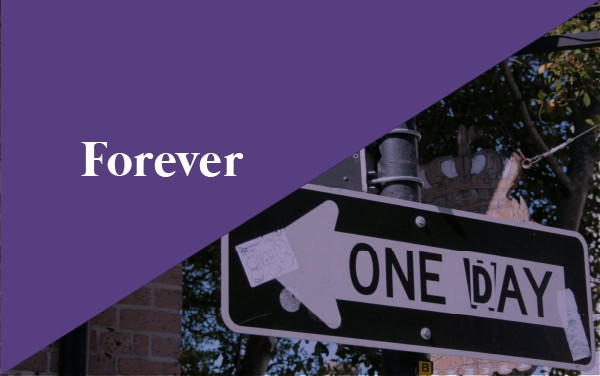
by RE Helper | Aug 15, 2024 | Alcohol Free, Blog, Early Sobriety, The first Year, Uncategorized
Today’s blog entry is from Jeff Miller. Jeff has been a member of Café RE since March 2024. He can be found on our zoom chats and supporting fellow members of Café RE.
Forever
By: Jeff Miller (Café RE GO)
There I was at 6 years old kneeling next to my bed repeating the same prayer over and over again, “Come into my heart Lord Jesus”. I would say it 10 or 20 times a night until I thought that I had annunciated each word perfectly otherwise it would not be acceptable to God and I would be destined for eternal damnation in outer darkness where there is weeping and gnashing of teeth.
55 years later those same words still echo in my mind.
I was raised in a charismatic Pentecostal church, in a small town where my Sunday school teacher had a captive audience of young boys. We were taught that if we were good and followed all of the rules, we would go to heaven. If we slipped up and sinned we would burn with eternal fire. I was in constant fear of Hell.
I entered into marriage when I was 22 to an 18-year-old girl who met my qualifications. She was pretty, and she went to the same church that I went to. We quickly had a child and my life of being manipulated and controlled by fear continued for 28 years.
One of the only shows that I could watch was 19 Kids and Counting, a reality TV show about a conservative Christian family with 19 children and more on the way. One of their practices was for the boys to not look at girls or women who were immodest. If there was anyone around them when they were out they would call out Nike! Which meant for the boys and Jim Bob, their father, to look at their shoes. My wife adapted this practice and would be constantly saying “Nike! Nike!” And I would have to look down until she said it was clear.
By the time I was in my 40s, my life revolved around discussions about how it is not proper for women to wear pants and, God forbid, bathing suits. By then, my daughter was in college. I was not only trying to defend myself but also her and the decisions that she was making as an adult. I recently read the book by Jill Duggar, Counting The Cost, which opened my eyes and brought my life of religious trauma rushing back.
In 2012, I finally filed for divorce.
I believed in my heart that I was making a decision that would lead me to an eternity in hell with no possibility of any reconciliation with God. This was an extremely difficult thing for me to live with. So I decided to relieve my guilt and shame with alcohol; after all, I was going to burn anyway. I never was a normal drinker.
I quickly began drinking a six-pack a day on the way home from work. Then I would hit the bars on weekends, including Friday Jr. I was often really hungover for work on Friday and Monday. At the height or depth of my drinking, I was spending over $500 per week on alcohol. Not including my generous tipping. Despite my drinking habits, I was blessed to meet the love of my life. We spent a substantial amount of time drinking together, but as you will see, our relationship was much more than drinking. After 2 years together, we were married.
Flash forward to Sept 7, 2023, and I’m meeting my CPA and my banker for drinks at lunch.
We drank a couple of bottles of wine and then departed back to our offices for work. Except I didn’t go back to my office. I went to a little craft beer place that was just across the street and had 3 or 4 beers. I got in my car and texted my wife that I was on my way home. About 30 miles from home, there is a little highway dive bar that I liked to sing Karaoke at. I thought I could squeeze in a couple of drinks and a song before continuing home. You would think that this was enough but nooo. I then drove another 10 miles and saw a Casino that I had never been to before. And decided what the fuck! I’m going to hell anyway.
At some point, I was outside of my body, watching myself. It was so strange.
I was buying drinks for complete strangers and throwing money around like I was Elon Musk. I somehow got hooked up with a woman that I had never met before and found myself checking into the hotel with her. I had never done anything like that before, and retrospectively, it cuts me to the core. I honestly don’t know what happened after that. It was 5 AM the next day. I was sitting in my car in the garage at home, not knowing how I got there. I was still drunk. Apparently, I had made a 20-mile drive on a very dangerous mountain road in a complete blackout.
My wife had moved into the guest house and cut off all communication. I went into the house, took a shower, and headed to an early breakfast with 2 bottles of Prosecco. I staggered into the winery around midday, making up all kinds of lies to explain my meltdown. I texted a friend to meet me. I ended up destroying my relationship with him and others before getting in my truck and driving home.
I woke up the next morning to the absence of my wife and a pounding headache.
I had betrayed my wife and my 17-year-old daughter in the deepest way. It made me sick to tell her the whole story, but I did. At that point, I didn’t know if she or my daughter would ever take me back. I spent the rest of that day trying to do damage control with those in town who had talked to me the night before.
My first step after that was to stop drinking for a while. At least long enough to try and repair the damage done to my family. My wife, who also had been struggling with alcohol, had several quit-lit books on Audible, so I started with Laura McKowen’s We Are the Luckiest and listened to it straight through. After completing the book I began to consider that I might have a problem with alcohol. Duh!
As the days passed and my wife and daughter were nowhere near reconciliation I had to do some real deep introspection. The days were hard. I was sweating and shaking. I could hardly get a glass of water or coffee to my mouth without holding it with both hands. I was experiencing uncontrollable head tremors and was extremely agitated and anxious. My only concern was that I could lose the most important people in my life. I was just stumbling through my days, dizzy and disoriented. That is when I had the thought that stopping for a while wasn’t enough.
It had to be FOREVER! SHIT!
I can’t do that. I don’t want to do that! But telling them that I was going to quit drinking for a while was like telling them that I wouldn’t hurt them again for a while. So, on my way home from work, I picked up a lot of poster board, and in Love Actually style, I wrote out my apologies and promises. One for my daughter and one for my wife. It had been 10 days and I don’t know if I was sick from alcohol withdrawals or missing them. They were still not speaking to me. I texted both of them and asked them to please meet me at the large glass doors at the back of the guest house.
I didn’t know if they would.
I prayed to a God that I had failed and whose judgment and wrath awaited me —please, God, If you still hear me, please help me with this. Help them with this. Please show me the way. I rounded the corner to the large glass doors and saw them both sitting attentively on the edge of the bed. With tears in my eyes, the same way that they are right now as I write this, I started the cards with my daughter first. On one of the cards it said I PROMISE TO STOP DRINKING and the next card said FOREVER.
Then I did the cards that I designed for my wife containing the same words. I PROMISE TO STOP DRINKING FOREVER. Broken, I could hardly stay on my feet. As I walked away I could see a flicker of hope in their eyes and even a bit of a smile. My last card for each of them. I LOVE YOU!
Soon after, my wife was back in the house, and she let me know that she had decided to quit alcohol forever also.
So we began our new journey together by getting an online sobriety coach, Teri Patterson, who really helped us and got me through some really tough days. We both started reading a lot of “quit” lit, and each of us found Recovery groups. Mine is Recovery Elevator / Café RE and hers is Write Back to You by Meg Geisewite, author of Intoxicating Lies, One Woman’s Journey to Freedom from Gray Area Drinking.
The RE podcasts were incredible and the stories there gave me hope. I went back to the first one and started listening straight through. Then I discovered Café RE where I signed up and began listening in on the morning chats every day. Even though I haven’t spoken yet because I am at the gym at 5 AM I still am beginning to feel like these people are my family.
Rebuilding my life required me to get to the root of the whys of my life. Why I started drinking and why I stopped.
I started talking to a therapist who happened to be an AA Sponsor and has been sober for 20 years. I’m starting to think that God might still hear me and that he might still love me.
Another big part of my recovery is meditation. I couldn’t even imagine that I would or could actually meditate, but thanks to a book by Dan Harris, Meditation for Fidgety Skeptics: a 10% Happier How to Book. I got started doing just 2 minutes a day, now I am doing close to 20 because it is part of the foundation that gives me peace throughout my days.
I am seeing everything more clearly. Finally dealing with all of the things that I was avoiding with alcohol, and it is hard. I really felt like shit for the first few months, but now the dark clouds are beginning to lift, and I am building hope and peace. I am accepting that God still loves me and hears me when I talk to him. I am softening my religious rigidness and know that I am a work in progress. I am more accepting of others and their beliefs.
Sometimes, I still battle my condemnation and my desire to drink it away. I then have to make myself go back and remember that God never left me, and the ones that I love the most took me back.
Saying forever seems like a lot to live up to, but for me, saying forever makes one day at a time possible.
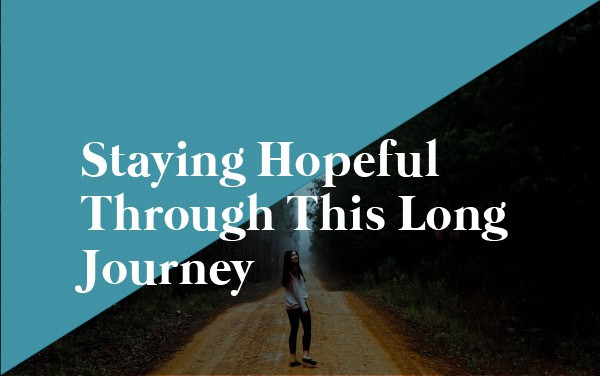
by RE Helper | Apr 15, 2024 | Alcohol Free, Blog, Early Sobriety, The first Year, Uncategorized
Today’s blog entry is from Ana. Ana has been a member of Café RE since April 2023 and is an active and supportive member of her Café RE OG group!
Staying Hopeful Through This Long Journey
By: Ana (Café RE OG)
Around 4 years ago, when I finally admitted I needed to tackle my drinking problem, I truly believed I wouldn’t be able to go a single day without alcohol.
It was scary.
It’s taken a lot of work; programs; books; podcasts; tears; failures; dollars; etc., but I’m pleased to say I’m on a good path to recovery.
Lately I’ve been feeling stuck though.
For the last 2 years or so, I’ve been trapped in the same cycle: I go about 3 months without alcohol. I don’t miss it; I hate it; I gag thinking of the taste. One day I get the nagging idea that I can drink moderately, like I used to.
I don’t want to go back to drinking, even in moderation. I just HAVE to prove to myself that I can, just one final time. I then try, it doesn’t work, and I end up back to square one with a new horrible story under my belt (I’m a binge drinker). It doesn’t make any sense – it’s my brain tricking me into drinking at all costs.
It usually goes like this:
I haven’t drunk in months and I feel great, so I’m CERTAIN it will be different this time. I never go out and order a cocktail or a nice glass of wine though. I buy a pint of the cheapest vodka at the liquor store across the street; rush home; and take around 3 shots asap.
I tell myself it’s sort of the same amount as a martini, therefore I had just a martini, therefore I’m “normal” (nothing wrong with one martini, right?).
Or I’ll buy a single serve can of wine at the market downstairs. I’ll chug it as soon as I walk out of the market; can’t even wait the elevator ride back home.
I tell myself it’s one serving, one generously poured glass; therefore, I had just one glass, therefore I’m “normal”.
Obviously, nothing about this is normal. Most times, I succeed and stop drinking that day. This should be the proof I was looking for, so this should be the end of the story. But I wake up the next day feeling hungover; guilty; and defeated. I go to the market and chug a can of wine by 9 a.m. to numb the crappy feelings.
Sometimes that does me in; sometimes I go a couple more days playing with fire like this.
Eventually I ALWAYS lose control and end up in yet another life-altering, humiliating binge.
This is a cycle I haven’t been able to break yet, and I so want to change that. Today I was at that crossroads. On Wednesday night I had my 3 shots of nasty Skol vodka (my “martini”). Thursday morning I felt wretched, so I eventually caved and had chugged a can of wine by lunch time. I miraculously didn’t drink on Friday. On Saturday though, the nagging discomfort was unbearable. I had some vodka in the afternoon.
My boyfriend was picking me up at 6 to go to a party. The risk of him finding out I’d been drinking and ruining the evening and further damaging our relationship didn’t stop me from having a can of wine dangerously close to 6. I felt miserable at the party, trying to act normal and not get caught. I just wanted to come home so I could have another can of wine before bed. To my annoyance, when my boyfriend drove me home, he wanted to come upstairs and hang out. I couldn’t wait for him to leave (how sad), and I got my can of wine as soon as he left.
Today is Sunday. I woke up, you guessed it, hungover and depressed. Every Sunday morning I volunteer at an animal shelter. On a similar Sunday, I would’ve stopped at a Walgreens on my way and bought/chugged a can of wine. In the afternoon, I would’ve stopped at one of the many liquor stores I’ve memorized on my route home. And that would’ve been the beginning of a dreaded binge.
I kept thinking the eventual binge was unavoidable. I even wondered if I should just get it over with, instead of torturing myself. I had to try harder, do things differently.
I played an episode of the Recovery Elevator podcast on my way to the shelter.
I picked one titled “What to say to someone who is about to drink” – fitting, I thought.
The guest’s name was Grant. His story is very different from mine, but also VERY similar. It brought back lots of harsh memories, as well as many insights I needed to hear today. Paul and Grant praised the several guests who have gone on the podcast with around 2 months’ sobriety. It felt good to hear someone acknowledge how difficult and admirable it is to cobble up 2 months. But it also felt frustrating. I’ve been a “two-monther” for 2 years now; I desperately want to graduate to the next stage! You know, the one where it gets easier!
In AA they talk about one day at a time. Today was more like one hour at a time. The Recovery Elevator podcast and conscious shift in mindset helped, but the day still felt like an endless minefield. It was sad to drive past my liquor stores and not stop. One even had an open parking spot right in front, like it was meant to be! I stopped for gas and found myself browsing the wine/beer section (I bought a Gatorade instead). I sat in my car when I got home, considering walking to the market, or even the liquor store.
I feel happy and relieved to report that I didn’t drink today.
I feel like crap, but I know tomorrow I’ll feel better thanks to today’s decisions, so I’m calling today a good day, a win. Abstinence is still my goal, so having broken my sober streak has me feeling defeated and upset.
But I have renewed hope: I did something different, and got different results. Maybe this is how I break the cycle.
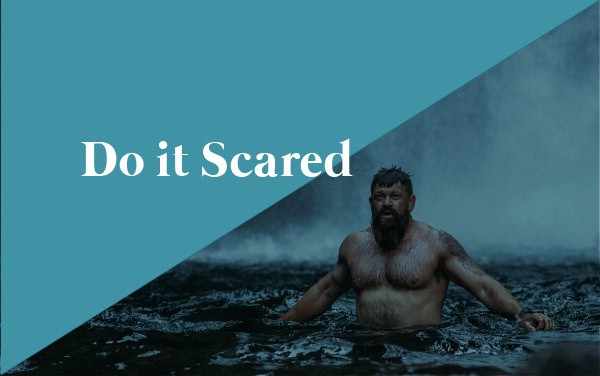
by RE Helper | Mar 15, 2024 | Blog, Early Sobriety, Expectations, The first Year, Uncategorized
Today’s blog entry is from Danielle Marr. Danielle has been a member of Café RE since June 2023. Danielle taught our most recent Ditching the Booze: Writing a New Narrative Course and was one of the teachers in our REstore Dray January Course. She is an active and supportive member of her Café RE OG group!
Do It Scared
By: Danielle Marr (Café RE OG)
Last fall, I committed to teaching Ditching the Booze: Writing a New Narrative, a 5-week course inside of the Café RE community.
As I reflect on that experience, there is so much coming up for me. I was on day three when I reached out to the team to see if they would be interested in hosting a writing course or workshop and the timing could not have been better.
It was one of those serendipitous, Big Magic-type moments where something inside of me said, “do this,” even though it didn’t make sense at all.
I had three days of sobriety – who was I to try to lead a group of people in a course on sobriety?
But I jumped anyway.
It was almost like I was taken over by some unknown source of energy that made me hit send on that email. And, as it turned out, there was a gap that needed to be filled.
The person who normally hosts the fall installment of the Ditching The Booze course had told Paul the day prior that he was unable to do so this time around due to life circumstances. As Paul was working on an email to Kerri with ideas of alternative course suggestions, my email asking them if they were interested in the idea of a writing course landed in her inbox.
Like…what?!
So, we went for it. More than 250 people registered.
Taking a Big Leap of Faith Doesn’t Always Make Sense In The Beginning
I prepped as best I could, and I ran the course every Monday for five weeks. I did it, like…pooping my pants, holy heck, what have I gotten myself into, scared.
And I did it even though I knew I would be leading a group of people in something that was so new to me. A group of people, half of whom, had more than a year of sobriety under their belt.
But the thing was that, even though I didn’t have much sobriety time under MY belt yet, I believed so deeply in the work. I believe so deeply in the power of writing your own story. And I knew, through hearing so many other people’s stories, that service to others is an amazing way to contribute to your own sobriety journey.
I told myself again and again that if I could help even just one person take the next tiny little step on their recovery journey by learning how to unpack and write their own story, all of the fear and doubt I had in myself would be worth it.
That didn’t make it any less terrifying though.
I have never had the confidence or self-trust to consider myself a teacher or a leader. I’m sure that was somewhat apparent to the participants in the class. But, the thing is, there is only one way to grow and that was a beautiful opportunity for me to work on my growth. Leading writing workshops and courses in the recovery space is something I want to do a whole heck of a lot more of moving forward.
When You Allow Yourself to Take The First Step, The Rest of The Journey Gets a Little Bit Easier
I led one of the classes for the January REStore course. I was able to tackle it from a place of experience, and a little bit more confidence.
But the first step was doing it scared.
Doing it without knowing how it would land.
Having sweaty palms and a racing heart, but showing up anyway.
I was able to do that because of the amazing support and faith that both Paul and Kerri showered me with leading up to and throughout the course. And the feedback that we got on the course was, to put it lightly, phenomenal. That last call will go down in the books as one of my most powerful sobriety moments thus far.
The thank you’s, and the beautiful, brave souls speaking up to say how much they had been looking forward to Monday nights all month long, among other wonderful acknowledgements truly warmed my heart in a way I don’t know I can ever fully express.
I started thinking about some of this after we got off that last call. And while I didn’t say it at the moment, I knew I needed to write about it.
Because it is such a beautiful representation of what it takes to quit drinking in the first place.
When we are so wrapped up in addiction, and we’ve been living a life consumed by that substance for so long, we don’t know what life is going to look like when we quit.
And that is an unbelievably terrifying prospect.
From the fear of what will happen to our bodies and what the withdrawal process will look like. How we will fill our days and who will want to spend time with us. It’s all such a big, hairy, scary unknown.
You have to do it scared to get to the other side.
Leap Without The Net & Trust That The Person You Are About to Become Will Be There to Catch You
You have to leap without the net. And then hope the version of you that you are about to become will be there to catch you. (Along with a truly amazing sobriety community if you happen to be part of something like Cafe RE).
You have to have so much visceral trust in yourself and the reason why you are doing it.
So, my message to anyone reading this is that if something is calling to you in your heart – whether it’s taking the leap to quit drinking or putting yourself out there by joining a community and opening up after months or years of self-isolation, or even applying for a job – do it scared.
Take the leap and trust that the net will appear.
Know that it might not go the way that you expect it to go.
That there will be hiccups. Moments of two steps forward and one step back. And you will probably feel like you have no idea what you are doing. But if it is something you know so deeply in your heart is going to be worth it, even if wading through the darkness of the unknown seems like the most terrifying prospect in the world right now, try anyway.
The time will pass one way or the other, but if you try, and you really give it your best effort, you will be proud of yourself. You’ll know that you did what you could with the resources you had available to you at the time. You’ll know that you showed up for yourself in ways that you’ve never done before.
You can so totally do this. Even if you’re scared.
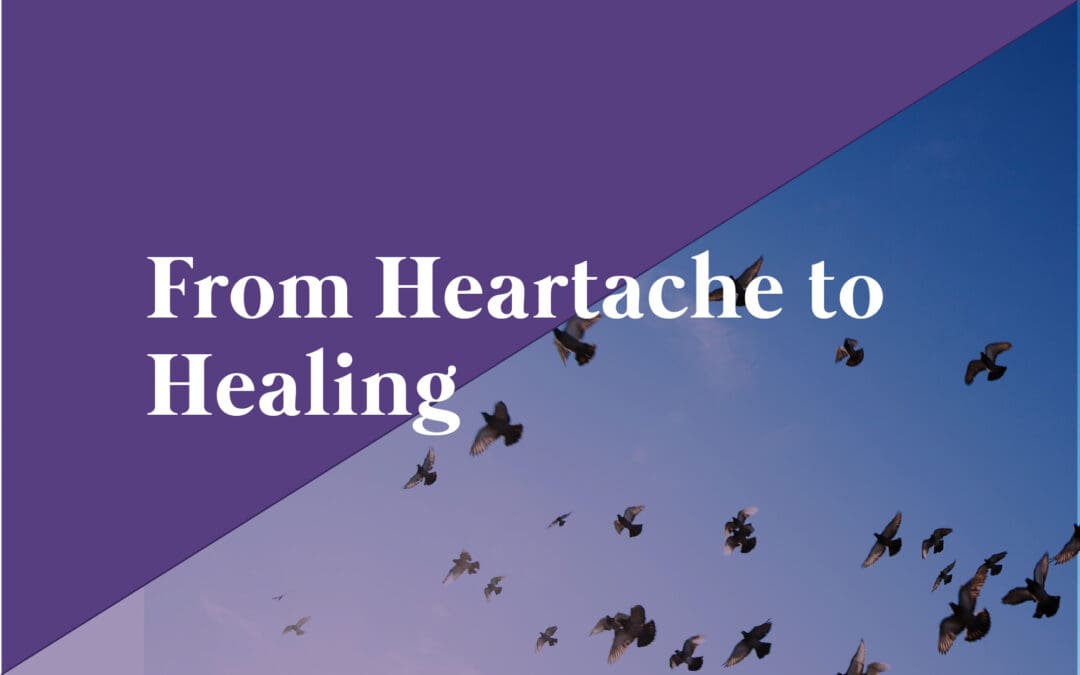
by RE Helper | Dec 15, 2023 | Alcohol Free, Blog, Early Sobriety, The first Year, Uncategorized
Today’s blog entry is from Adam Whitman. Adam has been a member of Café RE since September 2022. Adam has been alcohol free since January 1, 2023 and is very active within his Café RE OG community.
From Heartache to Healing
By: Adam Whitman (Café RE OG)
February 1st, 2023
My first month of sobriety is written in the books. 
The pink cloud is in full view and you better believe I’m right up in it. I take that back. I’m above it. Look at me soar. I’ve actually done it. I quit drinking. And you know, it isn’t that hard. Might I dare say it’s easy? I don’t even want to drink. It’s gross. I actually think it’s gross now.
I can’t hold back. I’m going to say it.
I am a freaking badass.
August 1st, 2023
My seventh month of sobriety is written in the books.
My negative thinking is out of control. Insecurities are running rampant. I no longer relate to my circle of friends. “I don’t like the new Adam” they say as I watch them slowly slip away.
And I’ve gotten fatter. What? Fatter? How the f**k did that happen?
I’m in the midst of the worst people pleasing flareup of my life. My marriage is hanging on by a thread. The woman who I’ve shared 22 years of my life with, who I’ve raised two beautiful children with, is tired. We’re both tired. And I’m not sure we can hold on much longer.
I can’t hold back. I’m going to say it.
I am a freaking mess.
August 5th, 2023
Today I set sail to the RE Bozeman Retreat. I’m driving. Yes, you heard me right. This Texas boy is driving to Montana–3,200 miles round trip. Let’s do this.
But wait a second. Was I really talking about splitting assets with my wife yesterday? Were we really talking about how we would manage custody of our children? What the hell is going on?
Maybe I shouldn’t go. But right now, Bozeman seems to be the only answer. As to what the question is, I have no idea. One thing remains certain.
My life is a wreck.
Trinidad Lake State Park
 Eight hours to Trinidad, Colorado complete.
Eight hours to Trinidad, Colorado complete.
The tent is up and I’m resting easy in my hammock. Look at me go. I can do this alone. I don’t need anyone. In fact, being alone is better. I am one strong dude. Back and forth my hammock swings between two trees until the sun goes down and the darkness sets in.
I’m lonely.
And afraid.
Did she really say she would leave me?
Quitting drinking uncovered some shit, didn’t it? I can’t get these thoughts out of my head. Who imagined it would be a good idea to venture out into the world alone in a tent for three days? Why am I such a mess? Will I ever get better? Will I be able to stop thinking about her? About me? About all of the shame and regret?
Sun, you can come up now.
 August 6th, 2023
August 6th, 2023
Glendo State Park
Six hours to Glendo, Wyoming complete.
My tent is pitched. It appears as if I’m the only person in this park. Rain starts to fall.
The negative thoughts continue to flood my mind. In addition, the solitude is proving that I really annoy myself. What does that even mean? I annoy myself? Is this what it’s like for others to be around me?
The thoughts continue to relentlessly take over. But within the constant bombardment of negative thinking a new softly spoken response starts to emerge.
Tell the thoughts to stop.
But I can’t.
Yes, you can. Quiet them. Just try it.
Adam, you’ve hurt people. Shh… Adam, you’re not doing enough. Shh… Adam, you’re worthless. Shh… Adam, you’re a failure. Shh… Over and over, like a broken record. Shh…. Enough.
Did drinking cause this madness? No. It hid it though, buried it deep. And now it’s here crawling out of the dark threatening me, whispering lies. I keep telling it to shut the hell up. But will it listen?
Persistence remains.
Time will tell.
August 7th, 2023
Grandview RV Park
Five hours to Hardin, Montana complete.
I chose an RV park this time, laundry and a hot shower, and people too. It’s been awhile. They distract me. This is good. The sunset is beautiful. I order a pizza and rest.
Tomorrow I will be in Bozeman. There I will finally be in the physical presence of my Recovery Elevator friend Jim. We initially met at the REstore Dry January course, the course where my journey towards enlightenment started, where the ups and downs of sobriety began. And Jim held onto me throughout.
If you know Jim that shouldn’t surprise you.
August 8th, 2023
Days Inn Bozeman
Four hours to Bozeman Montana complete.
It’s my first night out of a tent and in a motel. Jim is staying here too. I’m nervous.
After a couple of hours, we meet for dinner. During our introduction a firm handshake occurs followed by an awkward jump as if we both stuck our fingers in a light socket. It’s the ‘should I go in for a hug but then suddenly decide against it’ jump. Solid handshake though Mr. Jim.
I’m glad to finally meet you.
You’ve been a dear friend.
 August 9th, 2023
August 9th, 2023
Thirty minutes to Big Sky, Montana complete.
No turning back now.
Jim and I arrive at the retreat. I unpack my gear and set up my home for the next four days. It’s beautiful out here. Once my tent is ready I walk to the registration area. It quickly becomes apparent that many of these retreat goers already know each other.
What if they don’t like me? I am just a middle-aged dude with issues who somehow made his way far from home. Ain’t nothing special about me. Heck, I don’t even know if I like me.
The voices persist.
Maybe I’ll just stand here and pretend I’m feeling confident. Keep your hands out of your pockets Adam. Be cool man. Be cool.
But It didn’t take long before it happened. One, after another, after another approached me. “Where are you from?” they would ask. “You drove here?” “That’s so cool!” “Do you have a family?” “What are their names?”
My God they are so kind. Are all of them like this? Soon I realized that yes, they are. I wondered why. By the end of our time together I found the answer.
It’s because we all share in each other’s unavoidable suffering.
I used to think I could drown that suffering with booze, repress it somehow, maybe even eliminate it, alone. But as you might have guessed it never worked. It only made it worse.
Instead, in the presence of others working their recovery in the stunning landscape of Big Sky Montana, I dared to expose my suffering. I didn’t fight it, I didn’t hide it, I didn’t drown it, I shared it. And they shared theirs with me. And it was beautiful.
Connection is the opposite of addiction and I get it now.
I am here.
I am whole.
Finally.
August 23rd, 2023
My reentry home was purposely slow. I took my 
new-found freedom into the Utah desert first, then back up
into western Colorado to meet my Recovery Elevator
accountability partner, and finally back to the unbearable
Texas heat.
Everything’s changed.
 I missed her.
I missed her.
And come to find out, she missed me.
Today was our first day of marriage counseling.
I’m hopeful.
The negative voices, they’re still there. But they’re quieting, fading. Why? Because I have recovery tools to work with now.
And I have friends.
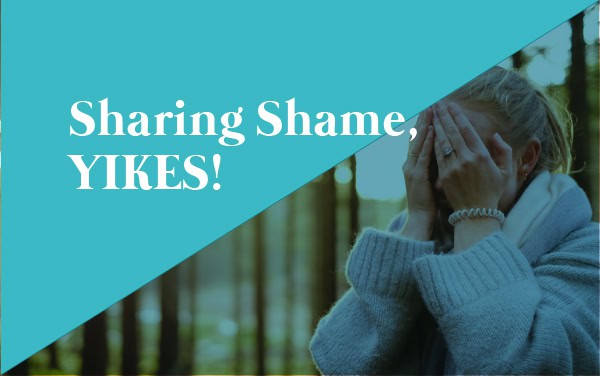
by RE Helper | Nov 15, 2023 | Alcohol Free, Blog, Early Sobriety, Expectations, Helpful Tips, The first Year, Uncategorized
Today’s blog entry is from Dustin Wade, who has been a member of Café RE since March 2021. Dustin has been alcohol free since January 30, 2020. He is very active within his Café RE UP group and on our community chats.
Towards the end my drinking progressed to the point that I started drinking as soon as I woke up. I knew this was taking me down a dark path.
This behavior started when I was newly divorced, single and could do whatever I wanted. Why not start drinking first thing in the morning? Fast forward, now in a relationship (with my now new bride!) I would have an hour or two to sneak some in before she woke up, and the sneaky behavior began!
My drinking continued at work, filling various water bottles with wine, beer, and vodka to drink in my office. Going out to lunch, and sitting at the bar to drink more. I would keep the buzz going until I went home. Then I would try and hide the fact that I had been drinking all day. Oh, then there were days I would lie about working late and hit the bar again on the way home.
My car got towed one time and I lied about having to ‘work even later’ so I could get it out of the impound lot. With the drinking all day, that meant I did a lot drinking while driving, and never thought twice about it! While at the same time judging others who did it too.
Day after day, the shame ran deep.
Shame kept me drinking for far too long, and my drinking routine caused some significant weight gain. It embarrassed me. I was always the skinny kid growing up, so I felt like everyone was judging me. Growing up my family didn’t open up and talk about our struggles. This contributed to me letting the shame of drinking build up inside. Eventually, all the lying and drinking all day caught up with me and I had to face the music. When my fiancé found some hidden alcohol I had to share what had been building up inside for so long. Unable to hide behind a lie, I had to tell her how much I was drinking. Finally talking about this big secret I’d kept for so long I felt some burden being lifted. It was the scariest thing I’ve ever had to do!
I had always known that day was going to come. Part of me wanted it to happen this way, and part of me wanted to go out with a big rock bottom. A few days later, I stepped into an IOP (intensive outpatient program) and shared my shame of abusing alcohol with total strangers. Once I did it was like something reached into me and lifted this huge burden buried deep inside. I wept. It was so emotional hearing the words that I had a problem with alcohol come out of my mouth.
I quickly learned how powerful sharing shame could be.
Sharing shame can come in many forms, and you may want to know who your audience is before sharing. It might be with loved ones, close friends, AA meetings, your sponsor, therapists, rehab programs or publicly, like on the RE Podcast. It might be a post in a private Café RE group or a share on a Café RE chat.
A big share for me was doing the Café RE member spotlight, where I shared my story with the group.
Along the way, I was listening to other shares, and with everyone, there was something that resonated with me, and comforting to know I wasn’t alone. For this reason, I continue to share, because you never know who may need to hear what you have to say. What I realize now, is that I have shared shame is safe places, and I knew the audience. I think this is important to note.
There is a lot out there on sharing shame. Here is an excerpt from psyche.co website about sharing shame: ‘Sharing about our shame can help us realize that others will accept us despite self-perceived flaws. Further, sharing often provides a space where others open up and actually relate to our experiences, which decreases the sense of aloneness and can increase our trust in opening up to others.’
This last part of the quote really hits home, the decrease in a sense of aloneness has been huge for me, and bright spot in my recovery. Likewise, my increased trust in opening up to others has allowed me grow and learn. There was certainly no growth when I just bottled things up inside, with no outlet other than drinking.
I will leave you with this quote by author Ann Voskamp, ‘Shame dies when stories are told in safe places.’
Have you shared your shame?







 Eight hours to Trinidad, Colorado complete.
Eight hours to Trinidad, Colorado complete.  August 6th, 2023
August 6th, 2023
 August 9th, 2023
August 9th, 2023
 I missed her.
I missed her.

